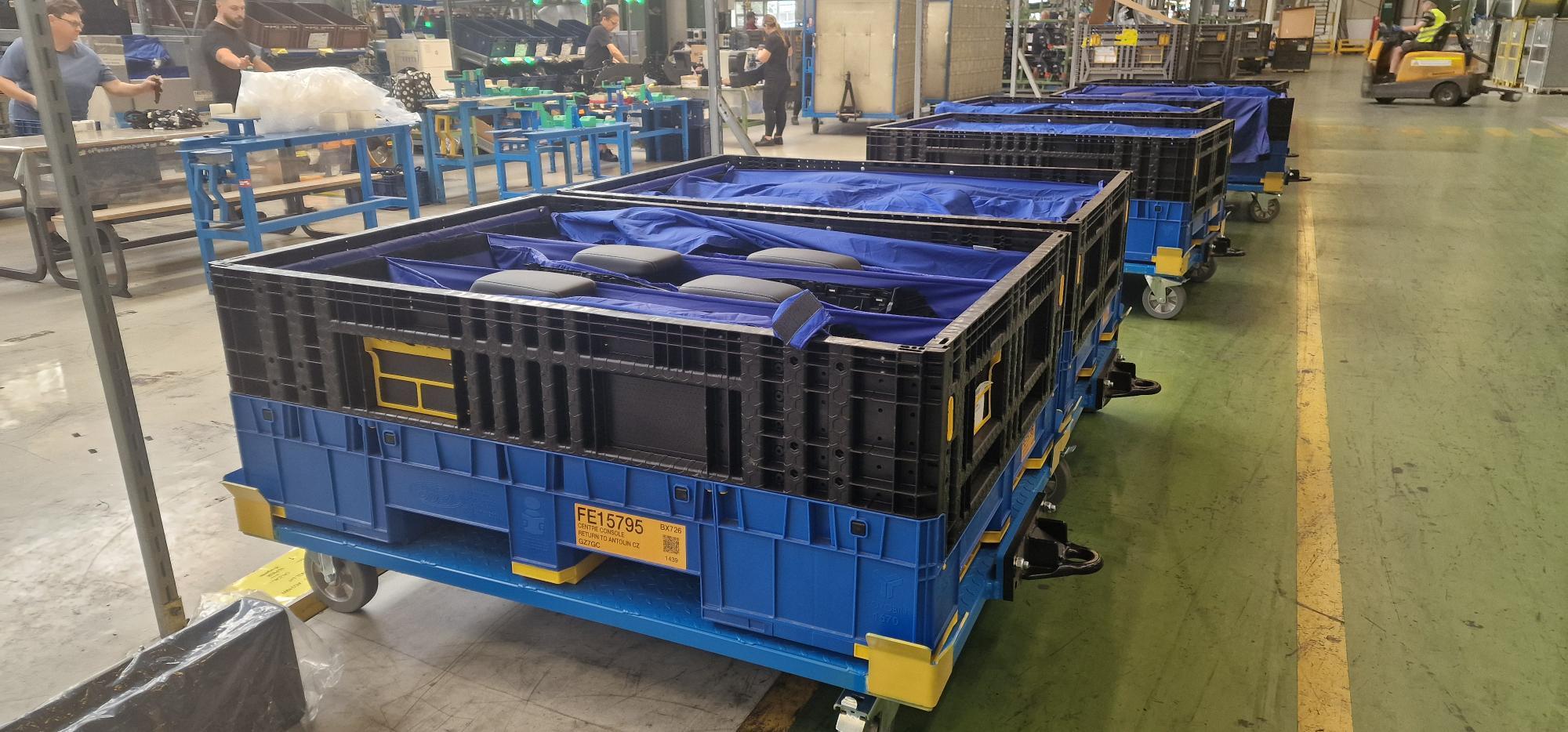Sustainability has become one of the defining challenges for the automotive industry. With global targets for reducing carbon emissions and the push for greener supply chains, every stage of production and logistics is under scrutiny.
Packaging and transport – often overlooked compared to vehicle design and fuel technology – represent a significant opportunity for change.
By adopting innovations such as Tri-Wall Circular’s YOYOBin Adjustable, automotive OEMs and Tier Suppliers can make measurable progress in reducing carbon emissions throughout both inbound and outbound supply chains.
Lightweight materials for greater efficiency
Traditionally, steel has been the material of choice for automotive packaging and containers. While durable, steel is heavy and contributes to higher fuel consumption when transporting goods.
The YOYOBin Adjustable, made from engineered plastic, provides a lightweight yet robust alternative to steel. By reducing the overall weight of containers, logistics providers consume less fuel across every journey. Scaled up across thousands of trips, this translates into significant emission savings and cost reductions, all while ensuring maximum protection for valuable components.
Through our collaboration with Global Logistics Emissions Council, we are able to introduce measurable cost savings for customers by reducing fuel consumption and emissions through the lightweighting of trucks.
Importantly, this gives us the ability to help customers calculate and prove these savings, making it easier to demonstrate the tangible impact of their supply chain choices to ISO 14085 standards.
These verified results can be directly included in ESG reporting, marking the first time packaging has been able to evidence its role in delivering real, quantifiable sustainability benefits.
Fewer journeys, lower emissions
The YOYOBin Adjustable is designed to optimised stacking whether full or empty, both during transportation and storage.
For inbound logistics, this means OEMs and suppliers can transport more parts per trip. For outbound journeys, empty bins can be collapsed and stacked efficiently, cutting down on wasted space and unnecessary trips.
This reduction in the number of vehicles on the road leads directly to lower fuel consumption and reduced carbon emissions, supporting net-zero targets across the automotive sector.
Closing the loop with recyclable materials
A key feature of Tri-Wall Circular’s YOYOBin Adjustable is that it is made from fully recyclable materials. Once a container reaches the end of its life, its plastic can be re-processed into new bins, avoiding waste and reducing reliance on virgin raw materials.
This closed-loop system not only lowers emissions linked to raw material production but also supports OEMs and Tier Suppliers in meeting strict ESG and sustainability commitments.
Extending lifespan through repair and maintenance
Replacing entire containers due to minor wear is costly and wasteful. The YOYOBin Adjustable is built with a modular design, allowing individual parts such as bases, sidewalls, or forkstraps to be replaced without discarding the whole unit.
This repair-and-reuse approach prolongs the container’s lifespan, reduces waste, and avoids the emissions associated with manufacturing new units. For automotive supply chains, this means a more sustainable and cost-effective long-term solution.
A Roadmap to a Greener Supply Chain
The automotive industry faces mounting pressure to reduce emissions across every link in the supply chain. By shifting to lightweight, recyclable, and repairable foldable plastic containers like the Tri-Wall Circular YOYOBin Adjustable, you can take meaningful steps toward sustainability.
From optimising transport efficiency to closing the materials loop, these innovations enable OEMs and Tier Suppliers to make tangible reductions in their carbon footprint.
Replacing steel with the YOYOBin Adjustable delivers the following savings –
- 3500kg – 4000kg saving per full load
- 7000kg – 9000kg saving on return journeys when empty.
- Save $13,000 in fuel for 1000kg removed from a truck over 200,000km

